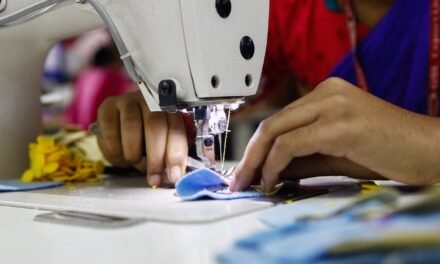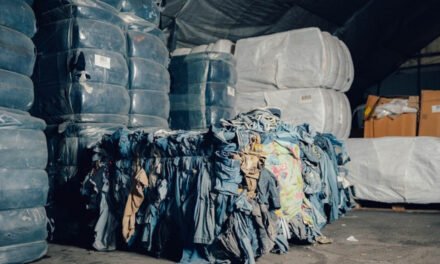 Textile manufacturers have called upon the government to reduce taxes and duties on import of raw materials for the industry. “Import duties on raw material should be rational and according to the percentage of other countries in the region,” Hamid Zaman, Chairman All Pakistan Textile Mills Association (APTMA) North, said.
Textile manufacturers have called upon the government to reduce taxes and duties on import of raw materials for the industry. “Import duties on raw material should be rational and according to the percentage of other countries in the region,” Hamid Zaman, Chairman All Pakistan Textile Mills Association (APTMA) North, said.
He said that textile manufacturers have to import machinery, synthetic and artificial silk yarn, polyester, cotton, yarn, knitting machines, and chemicals to fulfill the requirements of their industry. Hamid said that duties and taxes on importing raw materials are higher in Pakistan than in other exporting countries. He was of the view that cost of doing business in Pakistan was increasing sharply due to various reasons.
“Weak economic situation, energy crisis, currency devaluation, restrictions on imports and unavailability of raw material have caused serious problems to industrial production in Pakistan,” Hamid said. APTMA North chairman said that the impact of bad economic situation on industry can be minimised by reducing duties and taxes on the import of raw materials.
“It will provide some help to the industry to sustain during tough times,” he added. Exports are the only hope to revive the country’s economy, but unfortunately issues like non-opening of letters of credit (LCs), cash flow crunch and high cost of production are hitting manufacturing and exports,” Hamid said while talking to WealthPK. “During the last decade, 20 fastest-growing export economies reduced import tariffs, but in Pakistan, there was an increase of 11% in import tariffs,” he pointed out. According to Dr. Saud Ahmed, Research Fellow at Pakistan Institute of Development Economics (PIDE), Pakistan currently maintains the highest average weighted tariff amongst the 70 countries with more than $20 billion in annual exports. “Due to the inability of the tax machinery to collect direct taxes, reliance on taxes collected in Pakistan at the import stage has become alarming,” Dr. Saud said.
The tariffs collected at the import stage constitute around 48% of Pakistan’s total tax revenue compared to the export-driven economies, he informed. Pakistan’s weighted average mean tariff of 12.7% is the highest amongst the top 70 exporting countries in the world. In comparison, the weighted average tariff of top 70 exporting nations is 2.7%. The global average is 2.6%, the South Asian average is 5.9%, the Association of Southeast Asian Nations (ASEAN) average is 2.5%, China is 3.8% and India’s average is 5.8%, Dr Saud elaborated. “For the success of Pakistan’s trade policy to boost export performance and domestic productivity, it is vital to reduce import tariffs and simplify the tariff structure,” he suggested. Pakistan achieved its highest-ever textile exports of $19.329 billion during the fiscal year 2021-22. However, textile sector couldn’t sustain the trend of positive growth and exports started to decline in October 2022.
Textile exports are the major portion of country’s overall exports, and the textile sector hosts over 40% of the industrial workforce in Pakistan. Textile exports in 2021-22 accounted for 60.92% of the country’s total exports of $31.76 billion. According to Textiles and Apparel Policy 2020-25, textile exports target for 2022-23 was set at $25 billion.






















